Key Competencies Kit
for Facing Lifelong Learning


 |
This Project has been funded with support from the European Commission. This communication reflects the views only of the author, and the Commission can not be held responsible for any use which may be made of the information contained therein. |
 |
Didactic Unit 3 |
Theme |
Time |
Manage information |
locate, gather and organise information; |
1 hour |
present information; |
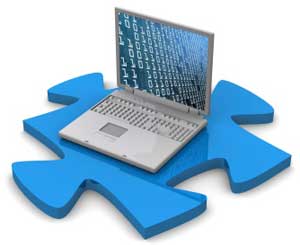
In simple terms, people are information literate if they know when they need information, and are able to identify, locate, evaluate, organise and effectively use the information to resolve personal, job-related or other problems.
The 'information' is not just about what's available through computers: it comes from many sources and in many forms.
Information literacy skills are skills you will need through your life. We are always seeking different information. What job vacancies are available? Which skills should I improve to find job? Which book should I read next?
Information helps us reach conclusions, make our choices, and communicate more effectively. But the good stuff is often buried in heaps of junk.
Information literacy is recognized as:
An information literate individual is able to:
|
In any particular case there are many answers to these questions depending on the need you try to meet. Sometimes the best source of information may be the Internet and sometimes your friend or colleague. However, to manage any information most effectively you need to follow steps that will help you to improve your information literacy.
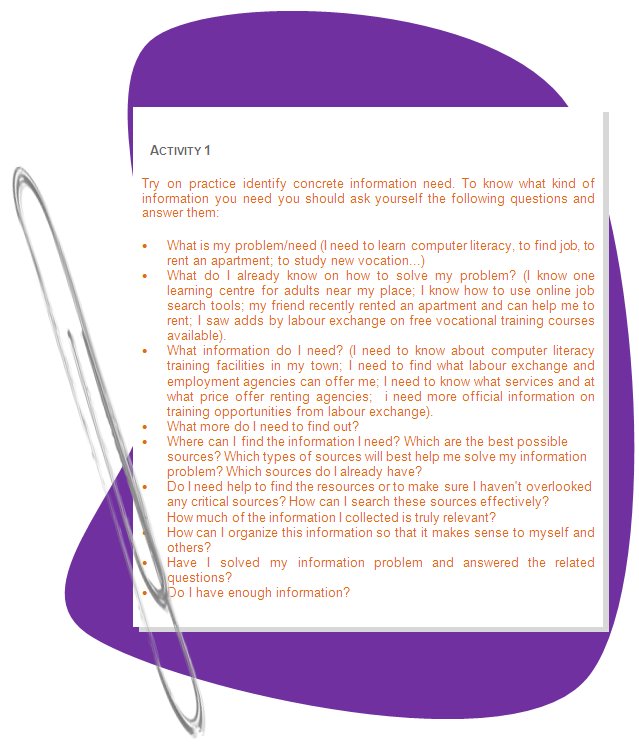
This is a process how people of all ages and backgrounds solve an information problem.
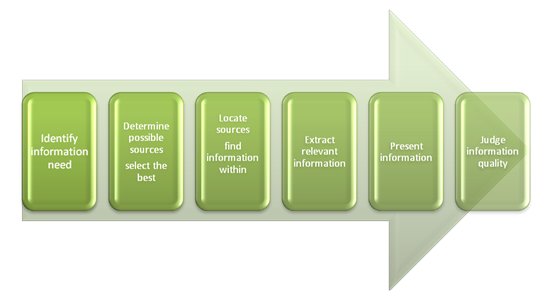
 |
Because information sources and information-seeking tools are constantly and rapidly transforming, it is necessary to update one's information-seeking skills every once in a while. This means that learning such skills has to be viewed as a life-long process, not something one can learn during one single course. |
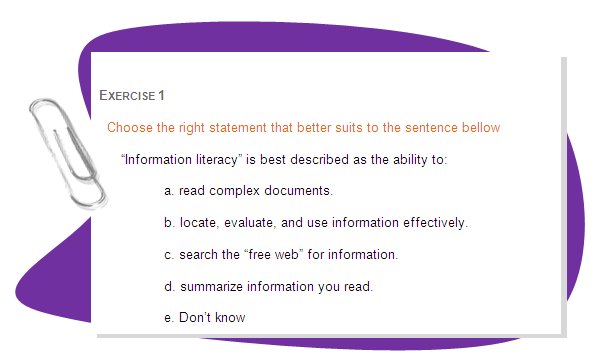
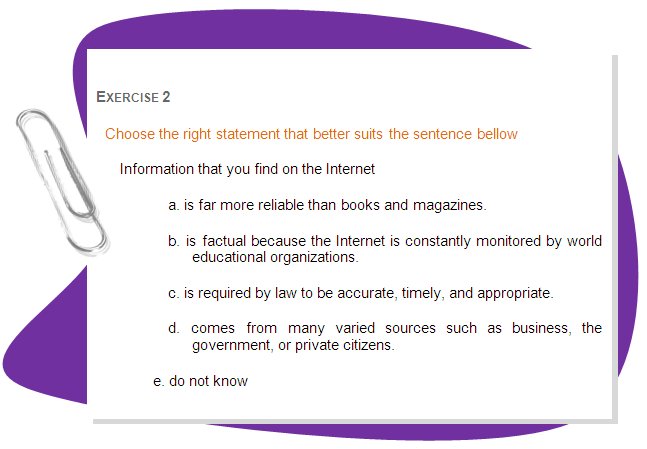
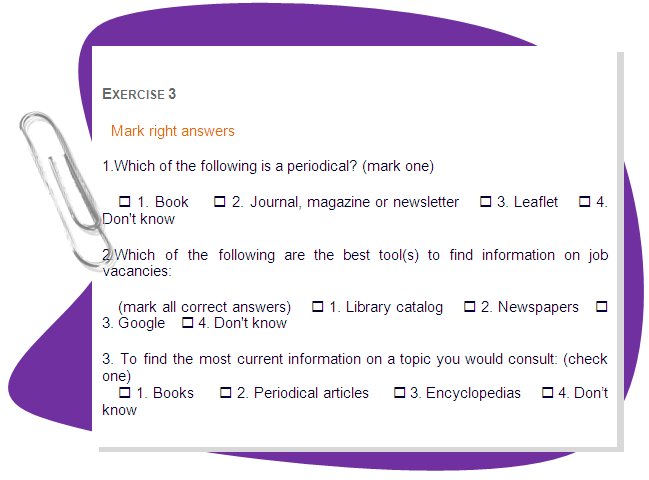
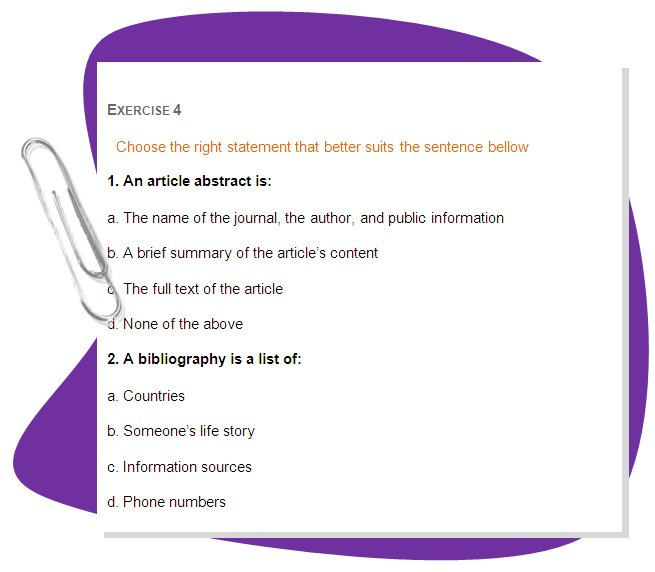
 |
Answers to the questions and exercises of Didactic Unit 3 |
b
d
2
1. b
2. c